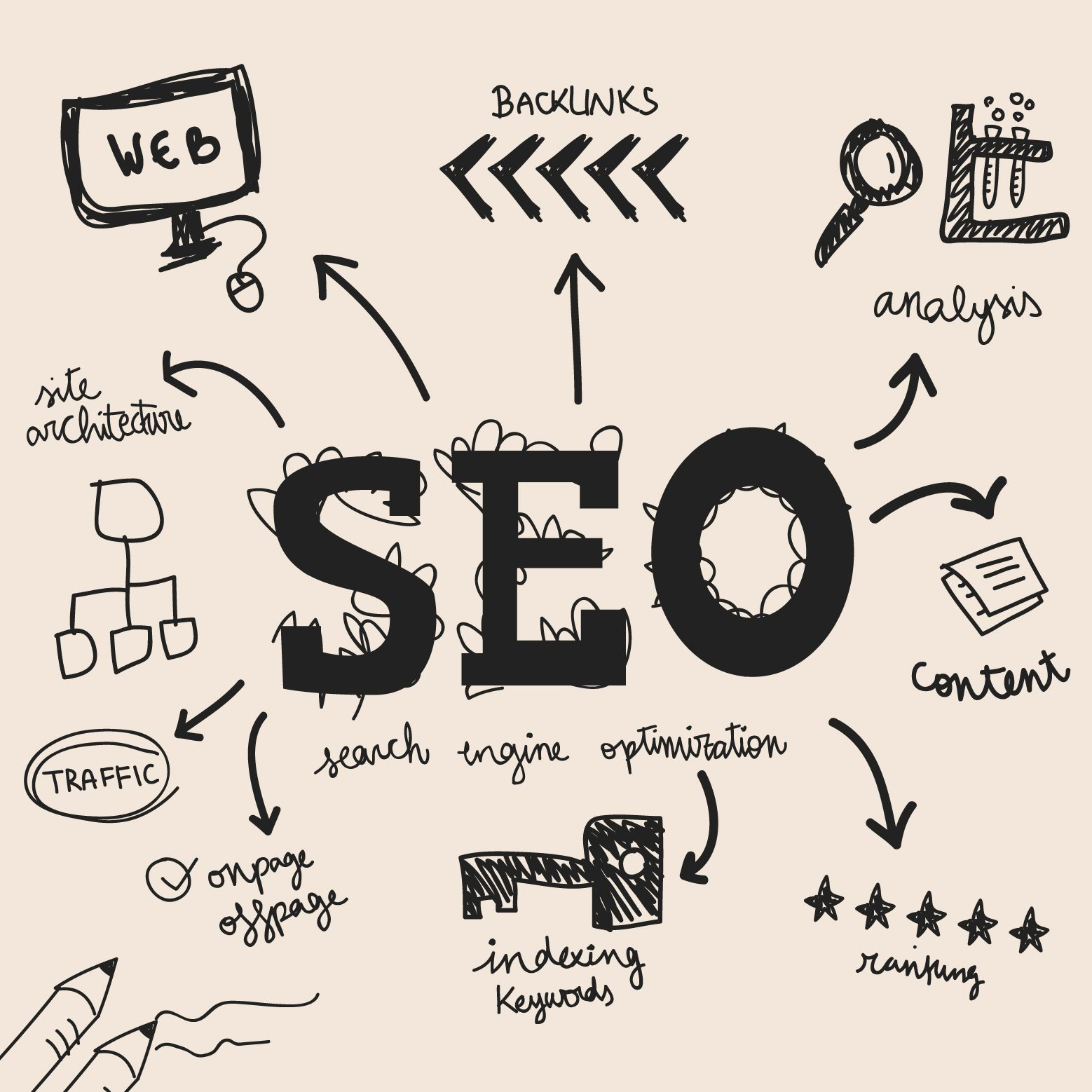In today’s world, digital marketing is becoming increasingly important in every aspect of the world, SEO is one of the crucial elements to help websites rank higher in search engine results, reach your target audience, drive more organic traffic, and increase visibility. Whether you’re a business owner, a blogger, or someone looking to improve their online presence, understanding the importance of SEO is essential.

What is SEO?
SEO stands for Search Engine Optimization. It is the process of optimizing a website to make it more suitable and stand out to search engines. The goal is to increase the ranking of the website to appear at the top of search engine results pages (SERPs), for relevant keywords or phrases. This helps increase the quantity and quality of traffic to your site from popular search engines like Google, Bing, and Yahoo.
Importance of SEO
- Increase Visibility: A higher ranking in search results means more people will see your website.
- Drive Traffic: Organic search traffic is one of the best ways to attract visitors who are genuinely interested in your content, product, or service.
- Build Validity and Trust: Showing up on the first page of search results signals to users that your website is dependable and authoritative.
- Improve User Experience: SEO practices often enhance the usability and overall experience of your website, which can increase engagement and conversions.
The Key Components of SEO
To successfully optimize a website, you need to understand the various components of SEO:
1. On-Page SEO:
This involves optimizing individual web pages to rank higher. This includes:
Keyword Research: Finding the right keywords that people search for and using them in your content.
Meta Tags: Titles, descriptions, and header tags should include target keywords.
Content Quality: High-quality, relevant content is essential for ranking well.
URL Structure: Clean, descriptive URLs help both users and search engines understand the content of a page.
Internal Linking: Links between pages of your website help search engines understand the structure of your site and pass authority between pages.
2. Off-Page SEO:
This involves activities outside of your website that can impact your rankings. The most common off-page SEO tactic is backlink building—getting other websites to link to your site. Quality backlinks from reputable sources can significantly boost your site’s authority and rankings.
3. Technical SEO:
This focuses on improving the infrastructure of your website to make it easier for search engines to crawl and index. This includes:
Site Speed: Faster websites provide a better user experience and rank higher in search engines.
Mobile-Friendliness: Ensuring your website is fully responsive on mobile devices is crucial, as more searches happen on mobile than on desktop.
Secure Sockets Layer (SSL): HTTPS is a ranking signal, and ensuring your site is secure will help improve its rankings.
XML Sitemaps and Robots.txt: These help search engines crawl your website more efficiently.
4. Local SEO:
This focuses on optimizing your website for location-based searches. This is especially important for businesses with a physical presence. Key strategies include:
Google My Business (GMB): Claim and optimize your GMB listing.
Local Citations: Ensuring your business’s name, address, and phone number (NAP) are consistent and accurate.
Reviews: Encouraging positive customer reviews on platforms like Google and Yelp.

SEO Best Practices
While bots and crawlers are constantly evolving due to changes in search engine algorithms, here are some of the best practices that remain consistent:
Create High-Quality Content: Focus on providing valuable, informative, and engaging content for your audience.
Use Relevant Keywords: Incorporate keywords naturally into your content, without overstuffing.
Optimize for Mobile: Ensure your site works seamlessly on all devices.
Improve User Experience: Make sure your website is easy to navigate, fast, and user-friendly.
Monitor Performance: Use tools like Google Analytics and Search Console to track your website’s performance and adjust your strategies as needed.
Conclusion
SEO is an ongoing process that requires constant attention and updation. By mastering the basics of on-page, off-page, technical, and local SEO, you can position your website for long-term success. Whether you’re just starting or looking to refine your existing strategy, a solid understanding of the basic principles will give you the competitive edge needed to thrive in the ever-changing digital landscape. Remember, the key to successful optimization is a user-focused approach—when you prioritize the needs and experiences of your audience, search engines will reward you accordingly.
Check out this website to connect to an SEO expert now – Best SEO Expert
